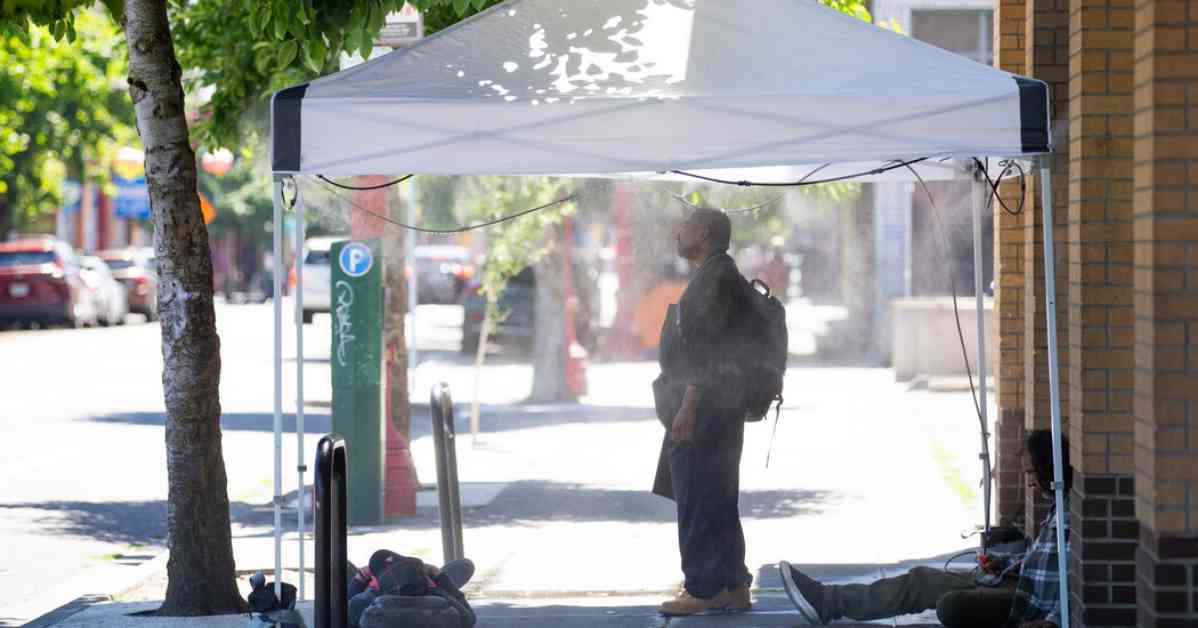The recent heatwave in the Northwest region has brought scorching temperatures close to 110 degrees in some inland areas of Washington, Oregon, and Idaho. However, relief may be on the way as cooler temperatures are expected to arrive early this week, except for Boise, Idaho, which experienced a record-breaking high of 108 degrees on Sunday.
Throughout the region, including parts of northern Nevada, the extreme heat has been a recurring theme this July. In 2021, the Northwest saw hundreds of deaths due to heat-related issues, highlighting the severity of the situation. In Boise, the high temperatures have persisted for 14 consecutive days, with most days reaching above 100 degrees. The prolonged heatwave has forced the Boise Farmers Market to close early for the second Saturday in a row to ensure the safety of vendors in the sweltering conditions.
Forecasters predict that temperatures in Boise will remain high until the end of the week, with Thursday potentially marking the 10th consecutive day of triple-digit temperatures, setting a new record for the city. In Spokane, Washington, temperatures soared to 106 degrees on Sunday, with more triple-digit temperatures expected on Monday. However, a dry cold front is anticipated to bring relief and cooler temperatures after that.
Climate change is believed to be a significant factor in the increasing frequency and intensity of heatwaves in the Northwest. Scientists warn that these extreme weather events are likely to become more common unless significant steps are taken to address climate change and its impacts.
As the region grapples with the effects of the heatwave, it is essential for individuals to take precautions to stay safe and cool during the hot weather. Staying hydrated, avoiding prolonged exposure to the sun, and seeking out air-conditioned spaces are crucial steps to prevent heat-related illnesses. Additionally, checking on vulnerable populations such as the elderly and young children is important to ensure their well-being during extreme heat events.
While the immediate forecast shows some relief from the scorching temperatures, the long-term implications of climate change on weather patterns and extreme heat events in the Northwest remain a concern. It is imperative for communities, policymakers, and individuals to work together to mitigate the impacts of climate change and adapt to a changing climate to ensure a sustainable future for all.


















